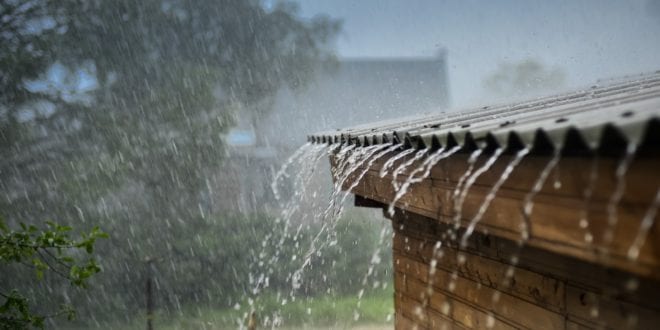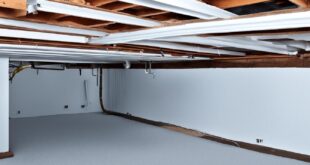When thinking about the damage that rainwater can cause to your home, it’s only natural to jump straight to the concepts of roof leaks and backyard destruction. In reality, though, the rain can threaten the property’s foundation and basement areas too. As a responsible homeowner, familiarizing yourself with those dangers is the first step towards overcoming them. Professionals like www.sedonawaterproofing.com can guide you on how to prevent basement or foundation water damage from occurring.
Whether you’re worried about the potential damage caused by recent rainfall or simply wish to prepare yourself for future adverse conditions, here’s all you need to know.
How Can Rainwater Damage the Basement & Foundation?
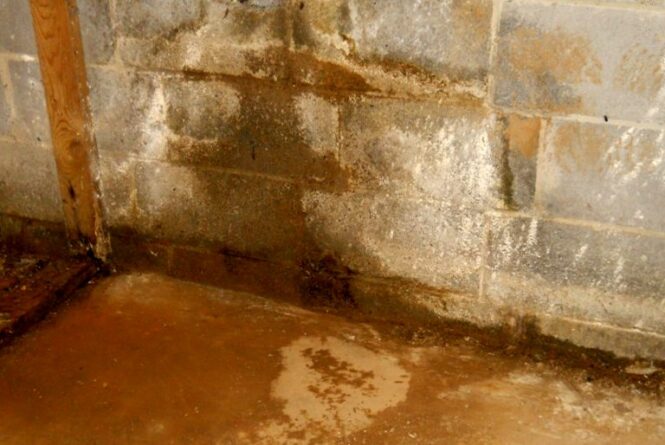
Rain damage can manifest itself in several ways, harming the home’s foundation and/or basement with varying degrees of severity. Of course, if damage from leaking roofs and related issues are left untreated, the dangers will eventually spread to these areas of the property too. However, the immediate and direct rainwater threats for the foundation and basement are as follows:
Ground Water
Hydrostatic pressure is a process in which rainwater pushes against the underside of the foundation due to flooding of the water table. This can damage the foundation, although it’s unlikely to move it out of position, leading to costly repair work.
More commonly, the water will penetrate cracks in the concrete to reach the basement and cause major damage to this part of the property. The saturation at ground level is very hard to stop once it starts happening, which is why a sump pump installation is vital or protecting the home from future damage of this ilk. Prevention is the best form of protection.
Ground water is an issue that is influenced heavily by geographic location, which is why you must conduct the necessary research.
Pooling Water
A similar issue occurs when water pools around the perimeter of the building. The water will eventually compromise the foundation of the property and can seep through gaps to cause severe damage to the basement.
Pooling water can be caused by several issues, but the most common problems are attributed to sloping landscapes in which water is allowed to run towards the building rather than away from it. Essentially, the land’s natural drainage hinders the property rather than support it. In many ways, this is the equivalent of pointing your gutters towards the building.
The drainpipes are a source of danger too, especially when they are clogged or encourage discharge water to be redirected towards the home.
External Pressure
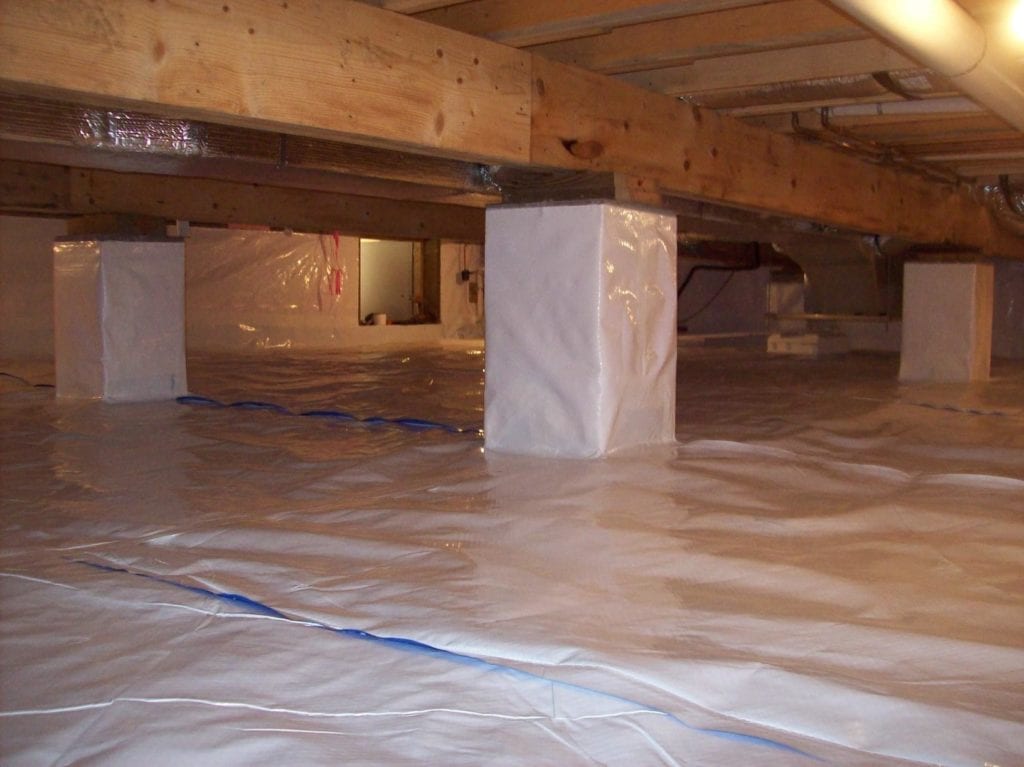
Soil types and density play a huge role in the speed at which rainwater is drained away from the building. Sadly, when the soil in your backyard and other surrounding areas isn’t at the desired level, it can lead to a lot of problems.
Essentially, if the rain takes a long time to drain, the absorption makes the soil heavier and denser, which leads to added pressure on the walls until reaching the stage where the water has been drained. Over time, this pressure can lead to cracks and gaps, which lead to inward rotations and similar degenerations.
It’s often very difficult to notice this type of problem until severe damage has occurred. Testing your soil is advised.
Drainpipe Damage
The issues related to clogged drainpipes and gutters have already been mentioned but deserve added attention. When the gutters aren’t equipped to handle heavy rainfall, overflowing rainwater is inevitable. Sadly, the basement and foundation are among the biggest victims.
Water and saturation caused from this source may lead to pooling water, seeping, and other forms of penetrative damage. It is one of the easier problems to prevent, as you can replace the gutters in a relatively simple manner. While wide and functional gutters with anti-clogging guards are vital, you also need to focus on the direction of the spouts.
Fail to get this right, and you are simply diverting rainwater away from the roof and walls and into the basement. Bad move.
Signs of Rainwater Damage
While prevention is the best form of protection, you will only need to take action when there are reasons to believe that the property is at risk of danger from the rain. If the home seems unlikely to suffer flooding or related issues, you simply need to stay vigilant.
As for signs that rainwater has damaged the basement or foundation, through any of the reasons mentioned above, the following symptoms must not be ignored:
Basement Flooding
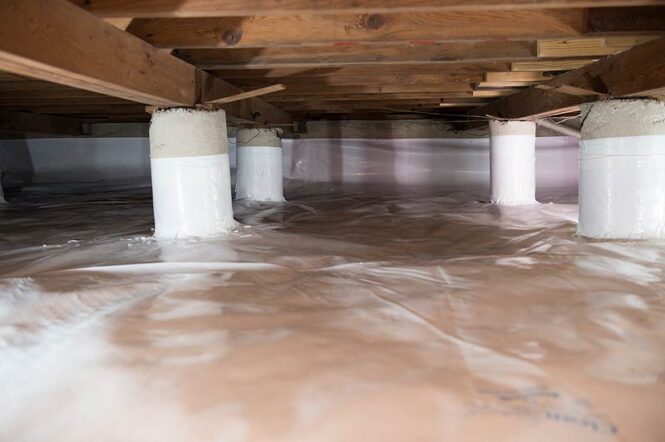
If water has pooled in the basement, there is clearly a problem. Assuming it’s not a burst pipe or leak from your internal plumbing, it’s likely that rainwater is the main source of your troubles. Whether the water is a few millimetres or several inches, it’s vital that you pay attention.
Dampness
As well as water on the floor, signs of damp suggest that moisture has entered the basement via cracks, and other gaps caused by the rainwater. Dampness may appear in a localized spot or spread across this part of the property. Either way, a solution is needed.
Foundation Misalignments
Problems with the foundation caused by rainwater pressure will be visible throughout the home. This could mean that doors no longer sit flush in the frame or that the floorboards are no longer perfectly level. Either way, checking for rain damage is key.
Smells
Rainwater moisture will smell, especially when it has been through the outside soil or carries bacteria from outside the home into the property. The distinct smells are a clear sign of a drainage issue that has impacted the foundation and/or basement.
Whatever the symptoms may be, fast action is required. Otherwise, you’ll ask for further damage to occur over the coming months. Sadly, this will create a situation that’s far more costly and time-consuming to rectify.
The Final Word
Protecting the roof from rainwater damage may be your first concern, but the basement and foundation require an equal level of care and attention. Whether it’s treating existing issues or preventing future problems, the positive influence on your property value as well as your daily life can be huge. Conversely, allow the issues to escalate, and you could be open to a nightmare.
 Imagup General Magazine 2025
Imagup General Magazine 2025
